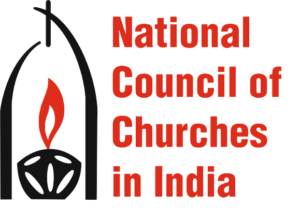NCCI lends voice to today’s Doctors’ protest and those protesting all over the country
As the medical communities rise up together, and the entire country with them, the National Council of Churches in India (NCCI) lends it’s voice to those that condemn the ‘rape and murder’ incident of the young PG Trainee in the R G Kar Medical College, Kolkata, on 9th of August 2024. The Government must bring the real culprits to book without any further delay, and take action on all those who have acted irresponsibly and without basic sensitivities.
Through periodic advisories the NCCI has been requesting the leadership of the Protestant and Orthodox Churches in India to maintain Zero- Tolerance to Gender Based Violence in its faith affirmations and articulations. The Churches in the membership of the NCCI and their units have been advised to be compliant to the provisions of the Prevention of Sexual Harassment of Women at Work Place (Prevention, Prohibition and Redressal) Act 2013, including formation of Internal Committees where statutorily mandated and conducting periodic orientation to staff as mandated under the Act.
Through the Thursdays in Black Campaign and the 16 Days of Activism (Nov 25 to Dec 10 every year) the NCCI community have been continuously challenged to address all forms of violence against women, and to work to address every form of such violence. The Churches have been in many ways addressing every form of toxic-masculinity and inviting young and old toward building up a society whose boys and gentlemen are shaped on premises of redemptive and transformative masculinities.
We offer sincere prayers that the soul of the departed be reposed in God, and everlasting Peace be upon the parents, siblings and all the members of the family.
We commit again to serious interventions in our Churches and Institutions all over the country to nurture and promote responsible and respectful behaviour between peoples of all Gender Identities, and to the safety of women and those others with gender vulnerabilities.
While it is a time to hang our head in shame, we also commit to tirelessly endeavour and leave no stone unturned in order that the women and girls in this country will be able to walk with their head held high anytime of day or night, wherever they like to go, and however they want.
In solidarity and with blessings of abiding Peace that comes from Jesus who was also unjustly killed, yet lives in all who dare death in its face. Let that power give us victory and guidance in this situation and always.
Rev. Asir Ebenezer
General Secretary, NCCI.







